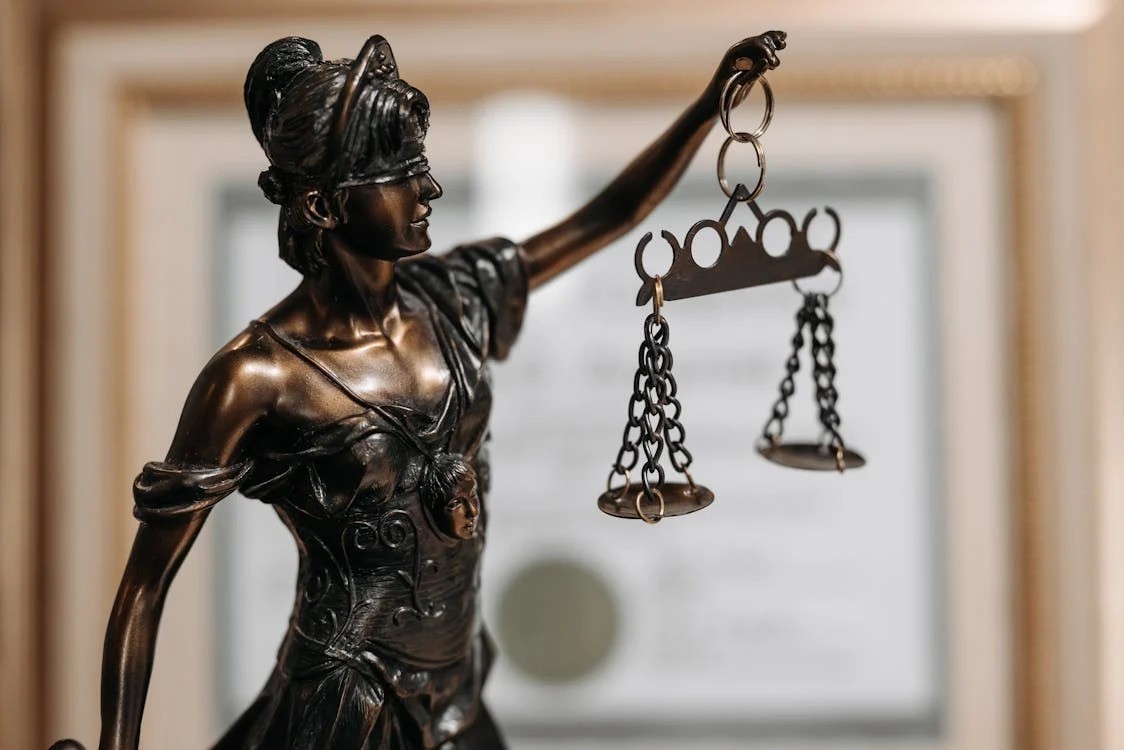Understanding the Role of a Wrongful Death Lawyer in Your Case

Losing a loved one due to someone else’s negligence is a heartbreaking experience. Understanding the legal recourse available, such as filing a wrongful death claim, can provide a sense of justice and financial stability during this difficult time. Lawyers experienced in wrongful death cases play a crucial role in navigating the complex legal processes aimed at holding responsible parties accountable and ensuring fair compensation for the affected families.
This guide delves into the critical aspects of wrongful death claims, the role of specialized lawyers, and the challenges families might face. Whether seeking clarity on filing a claim or exploring the potential compensation, this comprehensive overview equips you with the knowledge to navigate the journey toward justice and closure.
What Is a Wrongful Death Claim?
A wrongful death claim is a legal action that allows surviving family members to seek compensation after losing a loved one due to another party’s negligence or misconduct. Unlike criminal cases, which focus on penalizing the guilty, wrongful death claims are civil lawsuits aiming to recover monetary damages from the responsible party.
These claims typically arise from scenarios like fatal car accidents, medical malpractice, or unsafe workplace conditions. To file a wrongful death claim, there must be proof that the death resulted from negligent or wrongful actions. For example, if a driver’s reckless behavior causes a fatal accident, the family of the deceased could pursue a claim against that driver.
Wrongful death claims serve two main purposes. First, they address the personal injury the deceased would have pursued if they survived. Second, they compensate family members for financial hardships and emotional loss. Surviving spouses, children, or dependents might seek damages for loss of income, companionship, or parental guidance. This claim bridges the gap created by both financial obligations and emotional grief.
Responsibilities of a Wrongful Death Lawyer
A wrongful death lawyer plays a vital role in helping families navigate the legal process after losing a loved one due to someone else’s negligence. They handle complex legal tasks, ensuring families receive compensation for their loss while focusing on holding responsible parties accountable.
Investigating the Circumstances of the Death
A thorough investigation is the foundation of any wrongful death case. The lawyer gathers evidence to uncover how the death occurred and identifies liable parties. They review police reports, medical records, and eyewitness accounts. Sometimes, they may collaborate with accident reconstruction experts or forensic specialists for clarity. These efforts ensure every detail is documented to strengthen the case.
Establishing Liability and Proving Negligence
Holding the responsible party accountable requires proving negligence. The attorney must demonstrate that the at-fault party had a duty of care to the deceased, that this duty was breached through reckless or careless behavior, and that this breach caused the death. Examples include showing that a driver was distracted during a crash or that a property owner ignored hazardous conditions. Successfully meeting these elements solidifies liability in the case.
Calculating and Pursuing Compensation
Determining fair compensation involves evaluating both economic and non-economic losses. Lawyers calculate medical bills, funeral expenses, and lost income. Beyond financial losses, they also seek damages for emotional suffering, loss of companionship, and guidance. After determining these values, lawyers negotiate with insurance companies or present the case in court when fair settlements cannot be achieved. Their goal is to secure justice and financial relief for grieving families.
Who Can File and Be Sued in a Wrongful Death Lawsuit?
In wrongful death cases, determining who can file a lawsuit depends on state laws. Close relatives, such as a spouse or children, usually have the primary right to file. In some jurisdictions, parents or other dependents, like siblings or extended family, may bring a claim if closer relatives aren’t available. For instance, a parent or sibling might step forward if the deceased has no surviving spouse or children. Courts typically prioritize immediate family members because their emotional and financial losses are considered the most direct.
On the other side, wrongful death lawsuits are filed against individuals, entities, or organizations whose negligence or intentional actions caused the death. This could include a driver in a fatal car accident, a doctor in a case of medical malpractice, or even a company responsible for unsafe workplace conditions. Whether criminal charges exist or not, defendants in wrongful death lawsuits face civil liability, usually in the form of financial compensation rather than criminal penalties.
Types of Compensation in a Wrongful Death Case
Compensation in wrongful death cases serves to address both the tangible and emotional losses caused by another’s negligence or misconduct. This support can ease financial pressures while acknowledging the deep emotional impact on survivors.
Economic and Non-economic Damages
Economic damages cover measurable losses directly resulting from the deceased’s death. These may include costs like medical bills incurred before passing, funeral and burial expenses, or the loss of the decedent’s financial contributions. For example, a family might recover compensation for unpaid hospital stays or the income the deceased would have earned over their lifetime. If the victim was a homemaker, the cost of replacing their caregiving services, like childcare or household management, is also considered.
Non-economic damages address the emotional trauma and non-financial losses survivors endure. They can include compensation for emotional pain, loss of companionship, guidance, or parental support. A surviving spouse may receive damages for the love and moral support lost, while children can pursue compensation for the absence of a parent’s nurturing and mentoring.
Punitive Damages
Punitive damages serve a distinct purpose in wrongful death cases. Instead of compensating losses, they act as a deterrent for excessively reckless or intentional behavior. Courts impose these damages when the at-fault party’s actions go beyond negligence—such as in cases involving criminal activity or gross misconduct. For instance, if a drunk driving accident causes a fatality, punitive damages might apply to penalize the irresponsible driver. While not every case qualifies, these damages emphasize accountability and discourage similar actions in the future.
Handling Legal Processes and Deadlines
Wrongful death lawyers manage the complex legal steps in filing and pursuing a claim. They prepare and submit essential documents, ensuring compliance with state-specific filing procedures. Each state enforces strict statute limitations for wrongful death cases, setting a specific filing time frame. A lawyer ensures families act within these deadlines, avoiding potential dismissal of the claim.
Navigating court requirements often involves obtaining probate approval if the lawsuit is filed on behalf of the deceased’s estate. Attorneys guide families through this and other preliminary steps. They also coordinate communication with opposing parties, streamlining interactions and reducing stress for grieving relatives.
Wrongful death lawyers track critical case milestones, including filing dates, depositions, and hearings. Missing any of these can jeopardize a case’s outcome. By managing these details, attorneys prevent delays or procedural errors that could compromise justice or financial restitution.
Efficient preparation for trials or settlements requires gathering and organizing evidence to meet legal standards. Whether resolving the case in court or through negotiations, wrongful death lawyers ensure clients remain informed at every stage.
Why You Should Hire a Wrongful Death Lawyer
Hiring a wrongful death lawyer offers families legal expertise and emotional relief during an overwhelming time. These lawyers handle complex processes and ensure responsible parties are held accountable.
Navigating Complex Legal Systems
Handling wrongful death cases involves intricate legal frameworks that vary by state. A lawyer understands the procedures, strict deadlines, and document requirements unique to these cases. They prepare and file the necessary paperwork, ensuring everything aligns with local statutes to avoid dismissal or delays.
Wrongful death lawyers also conduct detailed investigations to uncover critical evidence. They analyze police reports, medical records, and witness statements, seeking facts that might not be apparent. With access to experts in fields like accident reconstruction or forensic analysis, they build a solid case to prove liability. By managing these legal intricacies, lawyers allow families to focus on healing instead of bureaucratic stress.
Ensuring Fair Negotiations and Settlements
Insurance companies and opposing attorneys often aim to reduce compensation, using strategies designed to minimize payouts. A wrongful death lawyer counters these tactics by calculating damages accurately. This involves immediate expenses like medical bills and funeral costs, future financial support, emotional loss, and non-economic impacts.
With experience in negotiations, lawyers argue effectively for settlements that reflect the full extent of a family’s losses. If the other party refuses a fair resolution, the lawyer can present a compelling case in court. They aim to secure justice while alleviating financial burdens caused by negligence or misconduct.
Common Challenges in Wrongful Death Cases
Wrongful death cases involve unique legal and emotional complexities, making them challenging for families and attorneys alike. Recognizing these challenges can help families better understand the obstacles they may face when pursuing justice.
Establishing Negligence
Proving negligence is essential in wrongful death claims but is often difficult to achieve. Attorneys must demonstrate that the responsible party had a duty of care, breached that duty, and caused the death directly. The legal concept of proximate cause often plays a pivotal role in linking the breach of duty to the resulting death. Liability may be contested, with defendants using conflicting evidence or denying responsibility, which requires detailed investigations, expert testimonies, and compelling evidence to counteract.
Conflicting Accounts of the Incident
Disputes over what happened can make it hard to uncover the truth. Eyewitness accounts may vary due to genuine confusion or deliberate misrepresentation by liable parties. Sorting through inconsistent reports demands thorough fact-checking, analysis of physical evidence, and potentially recreating the incident to establish an accurate timeline.
Managing Emotional and Financial Stress
Families experiencing profound loss often face significant emotional strain and financial instability. Legal proceedings can feel overwhelming while balancing grief, medical bills, or lost income. Attorneys strive to alleviate this burden by handling case details and advocating for fair compensation, ensuring families can focus on healing.
Gathering Key Evidence
Collecting relevant evidence is critical for building a strong case, but evidence can be lost or altered over time. Surveillance footage may be deleted, accident scenes may change, or documents may be unavailable. Attorneys work quickly and strategically to secure essential information, including medical records, police reports, and expert evaluations.
Defending Against Insurance Company Tactics
Insurance companies often attempt to minimize payouts or deny claims entirely. Adjusters may argue the deceased’s actions contributed to the incident or undervalue the family’s losses. Strong negotiation skills and preparation are necessary to contest these tactics and fight for a fair settlement.
Understanding State Laws and Deadlines
Wrongful death statutes vary across states, and missing filing deadlines can jeopardize a family’s chance at legal recourse. Identifying who has legal standing to file and ensuring compliance with local regulations requires detailed knowledge of state-specific wrongful death laws. Attorneys ensure cases move forward within required timeframes to avoid complications.
Each challenge underscores why wrongful death cases demand experienced representation. Attorneys must navigate these hurdles to help families achieve justice while addressing their emotional and financial needs.
Conclusion
Losing a loved one due to negligence is an unimaginable tragedy, leaving families to navigate both emotional and financial challenges. A wrongful death lawyer provides invaluable support during this difficult time, offering legal expertise and a path toward justice. Their dedication ensures that responsible parties are held accountable, helping families secure compensation that can ease some of the burdens they face. While no legal action can replace a loved one, having an experienced advocate ensures families are not alone in pursuing justice and financial relief.



